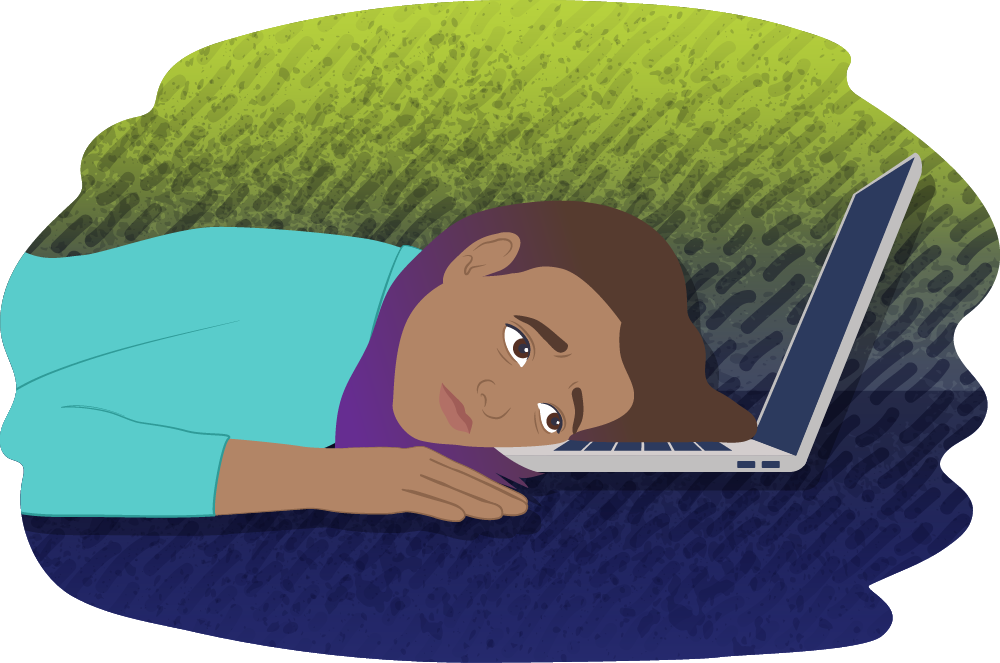How to manage anxiety
Anxiety can feel overwhelming, but there are some simple steps you can ...
READ MEIt can be a balancing act to manage different areas of your life such as work, study and personal time. Getting it wrong can lead you to experience ‘burnout’.

What is work/life balance?
Different people feel comfortable with different amounts of work or study and other commitments.
Some people prefer more or fewer hours in these pursuits than others – one size doesn’t fit all. Sometimes you have control over how your time is divided. Other times, you might have to sacrifice social commitments to get study done, or work more hours than you’d prefer, to make ends meet.
Having balance is about understanding your personal ‘sweet spot’ about whether you are working/studying too much or too little. (Everybody makes these judgments for themselves within reason, because we’ve all got bills to pay.) Doing too much can lead to burnout and anxiety. Doing too little can lead to boredom and even depression.
"I wasn't really able to pick up the signs of just how overworked and burnt out I was. I just can't do it anymore, I can't push myself to those limits."
–Larry Heath, Founder and Director NLMAS
Work and your brain
Modern work is a different environment to the one our brains evolved in. ‘Stress’ for our ancestors was immediate danger or anything that threatened survival, such as predators, disease or famine.
Workplaces are also full of modern day, complex ‘stress’, like passive-aggressive emails, which can have an impact on our mental health and wellbeing.
Of course, it’s not all bad! Great things about working and workplaces include improvement to quality of life, getting to socialise, learning new things, and having an opportunity to find purpose. And you don’t have hunt down your lunch – you just chuck it in the communal fridge.
If you are feeling like you don’t have balance, chances are you don’t. The biggest risk of too much work-related stress is burnout. In 2019, the World Health Organisation officially recognised and classified burnout as a ‘disease’, caused by chronic workplace stress that has not been adequately managed. Signs of burnout include:
More bad days than good
Low energy or feeling exhausted
Feeling cynical about your job, which can include negative attitudes to customers and being irritable
Reduced productivity/performance, which can include inability to cope, low morale and even avoidance of work
Burnout isn’t a personal failure, and the onus for preventing and managing burnout does not rest solely on employees.
Coping with burnout
Research has shown that there are systemic workplace issues that can make burnout more or less prevalent and can either assist or hinder with burnout recovery.
Here are some things that can contribute:
That’s why knowing your rights is so important. There’s only so much you can do at a personal level to prevent or manage burnout. If you are experiencing burnout, it’s ok to advocate and negotiate for a change in conditions.
Other ways to cope with burnout
If you’re having trouble balancing study, work, and other parts of your life you’re not alone.
Talking to someone and finding ways to reduce burnout can help.
Give us a call, start a WebChat or send us an email anytime, for any reason.
If you would like individual online support to help you reach your work and study goals headspace Work and Study Online can help.
How to manage anxiety
Anxiety can feel overwhelming, but there are some simple steps you can ...
READ MEExam Stress
Exam time can be challenging. While a bit of pressure can help ...
READ MECoping strategies
If you are feeling stressed, anxious or just struggling to deal, there ...
READ MEBeing assertive and setting boundaries
Improving your ability to handle tricky conversations, manage your boundaries and communicate ...
READ METalking helps! We’re here for you.
No problem is too big or too small.
We're here 24 hours a day, 7 days a week